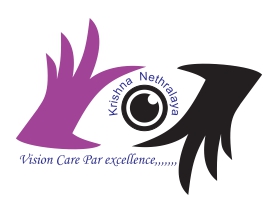Home >Refractive surgery
This page will address issues related to refractive errors and their treatments. A Refractive error is a condition of the eye where the light does not reach the layer of the retina that is sensitive to the light. The cause of such a condition may be dilation or contraction of the eyeballs, a change in the original shape of the cornea, or when the lens becomes hard due to old age. Refractive errors can lead to blurred visions or complex cases of visual impairment if not treated on time.


Refractive surgery is a procedure that aims to correct refractive errors. Through this method, the shape of the lens or cornea is changed so that the incoming light bends correctly and reaches the retina. Refractive surgery helps patients to get a clearer vision and thus improves the overall quality of their life. It is a proven surgical method that helps patients to get rid of contact lenses or spectacles forever.
Refractive surgery corrects eye conditions like near or far-sightedness, presbyopia, and astigmatism. This cosmetic surgery needs meticulous planning to achieve the best outcome. We are equipped with modernized technologies that ensure the efficacy of refractive surgery. Our experienced professionals strive to give you a comfortable experience throughout the surgical process at your convenience.
It is the most common type of refractive surgery in present times. In this process, the cornea is reshaped with a laser to regulate the path of incoming light. In this technique, a thin flap is made on the surface of the cornea. Through it, the laser reaches the tissue correcting the abnormalities in the cornea. The flap is again placed in its position, helping patients to obtain clear vision.
A uniquely designed procedure that helps in correcting abnormalities in vision. The procedure doesn’t require a blade or a flap and takes around 25 minutes to correct vision for both eyes. The groundbreaking invention has made refractive surgery a painless and comfortable experience for everyone.
Based on the latest technology, it enhances eyesight with the help of a newly invented medical device called a copolymer. This procedure corrects the axis of the eye, creating sharper and clearer eyesight.
It is a touch-free method of refractive surgery that helps in removing the epithelium of the eyes with a laser. The method is based on advanced technology which corrects vision problems and helps in getting rid of glasses or contact lenses forever.
Doctors recommend refractive surgery when the light coming from outward sources is unable to reach the light-sensitive tissues of the retina. In such a situation, the patient has blurred eyesight and is unable to see things clearly. Refractive surgery helps in bending the light correctly to the retina by changing the shape of the lenses or the cornea as required.
Doctors usually recommend refractive surgeries only after a patient has attained the age of 18 or above. However, an ophthalmologist recommends surgeries to patients only after a thorough diagnosis of their eye condition.
Hormonal changes might create refractive problems. But doctors usually do not recommend refractive surgeries to pregnant and lactating women. It is better to wait for a certain duration before undergoing the surgery.
Some commonly occurred errors in eye-sight that need refractive surgeries are-
Your doctor prescribes eye drops to take optimum care of your eyes. Before the Surgery, continuation of eye drops is important to avoid eye infections. Your doctor will guide you on the dosage and number of times you will be using the eye drop.
Presbyopia relates to loss of the reading vision during old age. Refractive surgeries help in correcting presbyopia and the patients are able to see near and far objects clearly.
Refractive surgery ensures that the patients do not have to wear spectacles anymore. However, based on specific cases, patients may have to wear spectacles based on the condition of the eyes
There are no specific guidelines that make a particular surgery the best one. An ophthalmologist checks the condition of your eyes and based on it prescribes the type of surgery that will benefit your eyes.
.
Refractive surgery is a safe and effective method for correcting eye problems. However, the surgery can result in rare occurrences like eye infections or dryness in the eyes. Post-surgery, professional help is essential to ensure the optimum safety of the eyes
An ophthalmologist will diagnose and prescribe the specific surgical method suitable for an individual. We will provide guidance throughout the process and devise a comprehensive plan exclusively suited for individual needs.
Stay connected with the latest advancements in eye care and receive exclusive insights by subscribing to our informative newsletter

Discover unparalleled eye care at the best eye hospital in Yelahanka. Our renowned facility, led by the best eye doctors in Yelahanka, is dedicated to preserving your vision and enhancing your ocular well-being.
Copyright © 2022. All rights reserved by krishna nethralaya